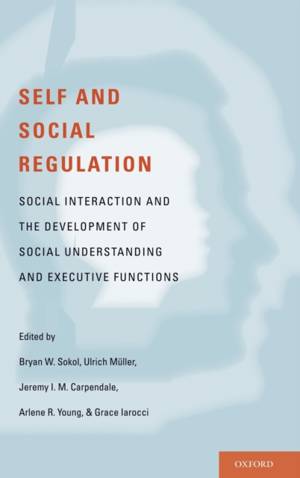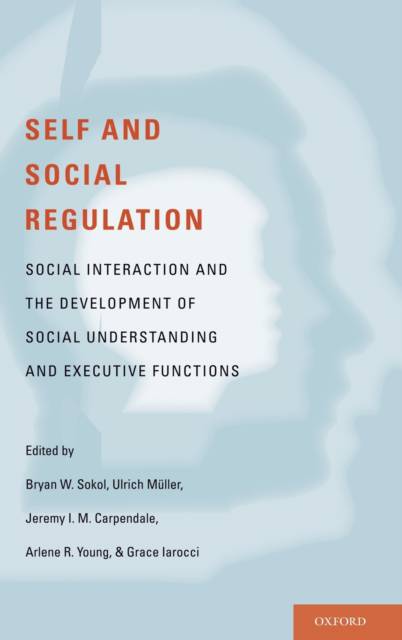
Je cadeautjes zeker op tijd in huis hebben voor de feestdagen? Kom langs in onze winkels en vind het perfecte geschenk!
- Afhalen na 1 uur in een winkel met voorraad
- Gratis thuislevering in België vanaf € 30
- Ruim aanbod met 7 miljoen producten
Je cadeautjes zeker op tijd in huis hebben voor de feestdagen? Kom langs in onze winkels en vind het perfecte geschenk!
- Afhalen na 1 uur in een winkel met voorraad
- Gratis thuislevering in België vanaf € 30
- Ruim aanbod met 7 miljoen producten
Zoeken
Self- and Social-Regulation
The Development of Social Interaction, Social Understanding, and Executive Functions
Bryan Sokol, Ulrich Muller, Jeremy Carpendale, Arlene Young, Grace Iarocci
Hardcover
€ 146,45
+ 292 punten
Omschrijving
This volume is a valuable resource for student and professional researchers interested in executive function, emotion, and social development.
Specificaties
Betrokkenen
- Auteur(s):
- Uitgeverij:
Inhoud
- Aantal bladzijden:
- 472
Eigenschappen
- Productcode (EAN):
- 9780195327694
- Verschijningsdatum:
- 4/02/2010
- Uitvoering:
- Hardcover
- Afmetingen:
- 164 mm x 236 mm
- Gewicht:
- 792 g

Alleen bij Standaard Boekhandel
+ 292 punten op je klantenkaart van Standaard Boekhandel
Beoordelingen
We publiceren alleen reviews die voldoen aan de voorwaarden voor reviews. Bekijk onze voorwaarden voor reviews.









